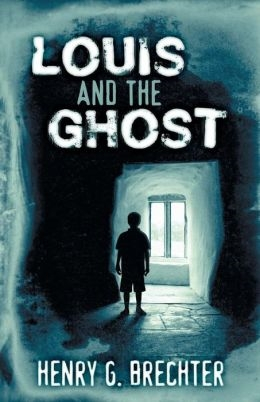Louis and the Ghost
This fiction debut offers an intriguing story of a ghost seeking help to escape purgatory.
Henry Brechter’s first in a new series, Louis and the Ghost, is the story of a young boy who connects with a kindly ghost in his family’s new home. Dramatic shifts in tone undermine an outwardly exciting story. Early chapters seem well suited, both in diction and pace, for young adult audiences.
The beginning of the book focuses on young Louis, whose father just relocated the family to an antebellum home in Virginia. In a thrilling turn on moving day, Louis finds a trapdoor in the ceiling of his room, and, beyond it, a loquacious ghost who calls himself Opa.
Brechter’s prose in these chapters is heavily descriptive, and omniscient narration affords readers insight into the innermost thoughts of many characters. Some of their declarations threaten believability—after meeting him for a moment, a police officer declares that Louis will be famous one day—but, generally, Brechter imparts a convincing picture of a transitioning family that is suddenly confronted with the supernatural.
Though these early pages seem to place the novel in the Mary Downing Hahn camp, an abrupt shift occurs around fifty pages in. The family, which until then seem straitlaced and suburban, is found to be secretly lascivious. A visit to a child psychologist is dominated by reflections on how much thigh Louis’s mother is showing. All women who are “hot” have their words appended by related reflections, and their presence serves to bolster the father’s ego. The introduction of buxom, Ivy-educated seer Oona doesn’t help. Subsequent language may shock, particularly juxtaposed to the relative innocence of early chapters.
Oona, in addition to inspiring colorful fantasies in the minds of Louis’s parents, does move the plot forward, primarily by convincing them to trust Louis’s experiences. Soon the whole family is picnicking with the ghost. He regales them with stories of his Civil War exploits and finally charges them with a mission to rescue his soul from purgatory.
The novel operates on several fronts, but the disparate motivations of its characters fail to tie story lines together. Meditations on parenting are delivered in close connection to sexist language directed Oona’s way; the seer herself fantasizes about raping Louis’s mother. Interwoven with the persistent young adult flavor of the prose, such lines are delivered with unintentionally disturbing effects. The sexiness of Oona romping with a rescued vet just a car seat away from five-year-old Louis, for example, never quite comes through.
Were the ghost story and the mysteries leading up to its resolution truly given center stage, the novel might find more success. It undermines itself by doing too much at once: repeating descriptions of the mother’s irresistible beauty, mentioning architectural features of the house repeatedly, focusing on the minute features of the family’s day, and introducing peripheral conflicts, like the illness of a family pet. There’s so much to mull over that the compelling drama of a trapped ghost gets lost in the shuffle. A shocking end manages to break faith with even the tenuous consistency of the rest of the book.
Young adult fiction readers will enjoy Louis and the Ghost, which abounds with intriguing notions.
Reviewed by
Michelle Anne Schingler
Disclosure: This article is not an endorsement, but a review. The publisher of this book provided free copies of the book and paid a small fee to have their book reviewed by a professional reviewer. Foreword Reviews and Clarion Reviews make no guarantee that the publisher will receive a positive review. Foreword Magazine, Inc. is disclosing this in accordance with the Federal Trade Commission’s 16 CFR, Part 255.

